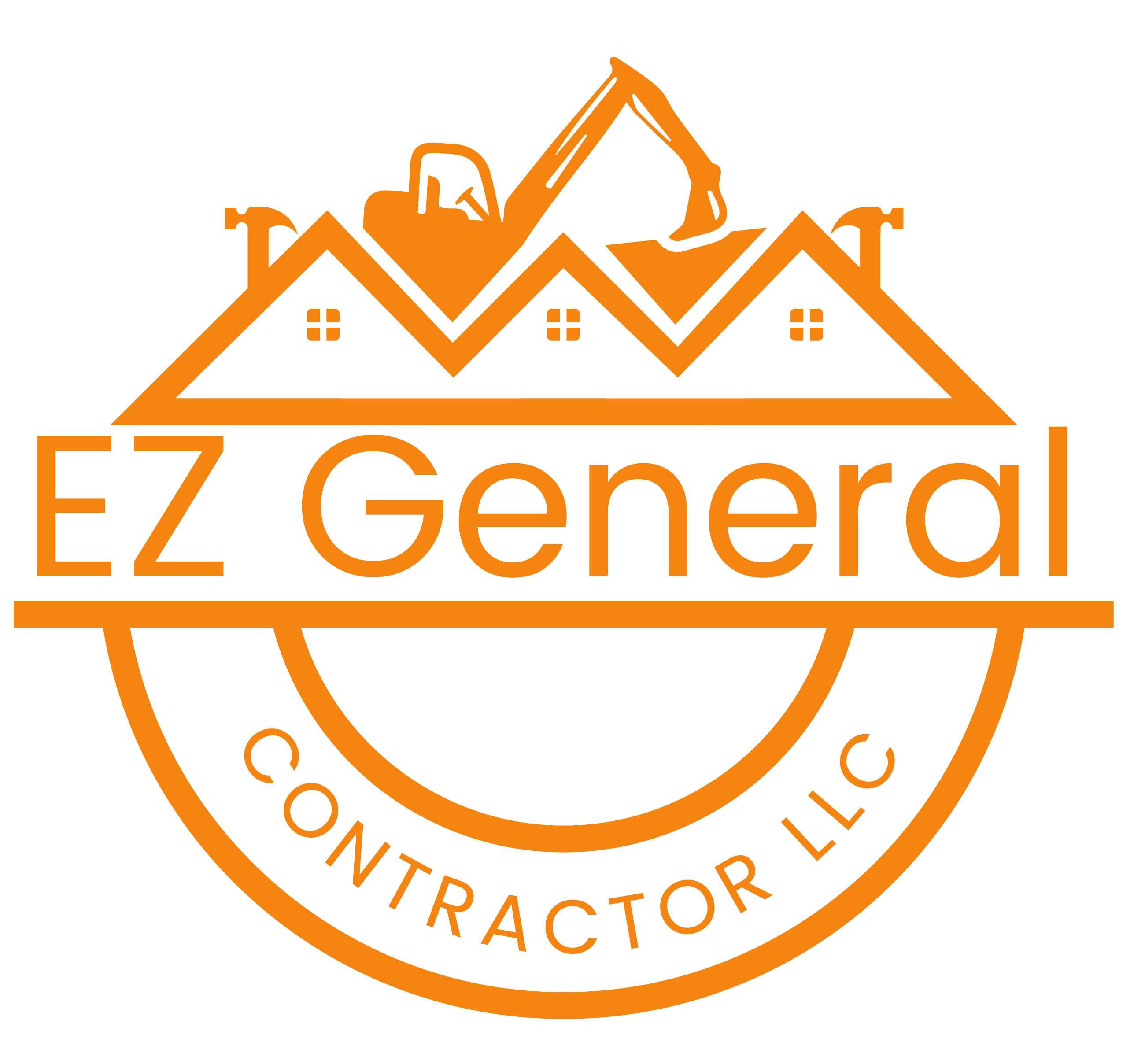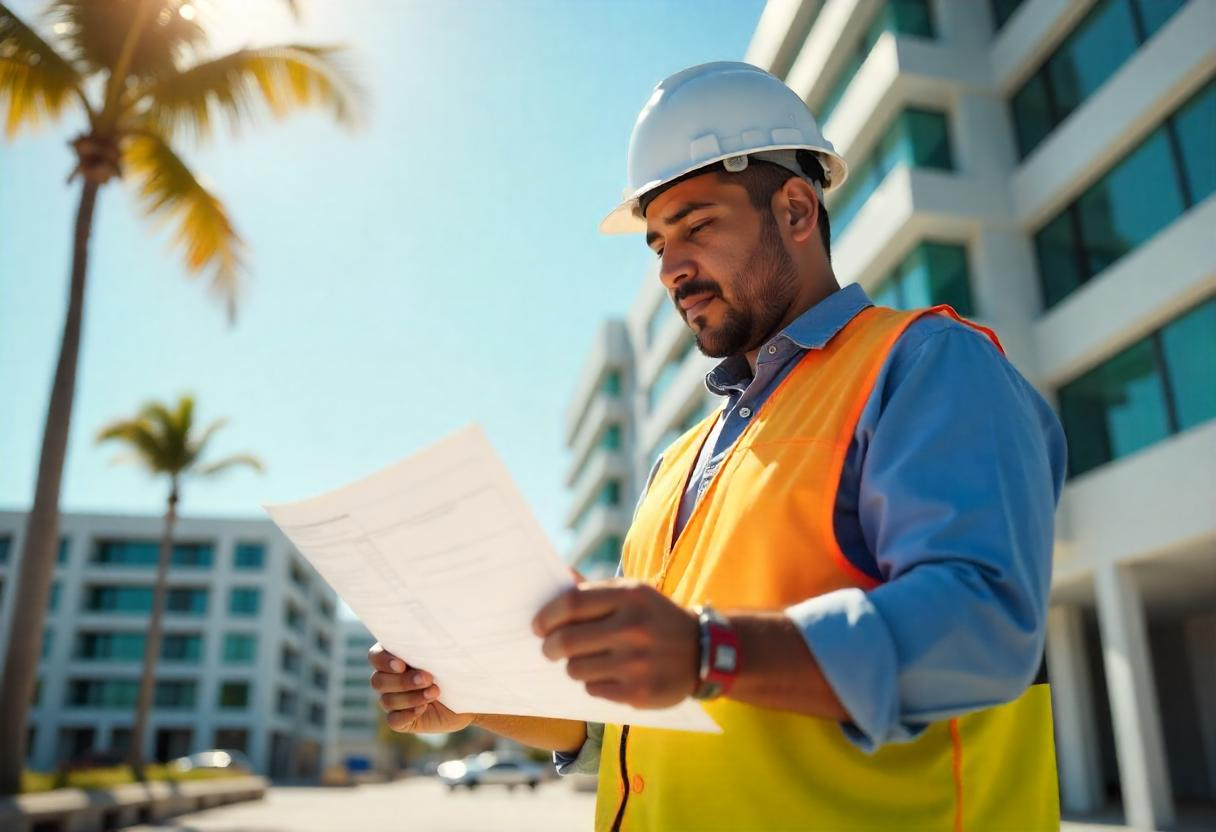How to Get Your General Contractor License in Florida – A Simple Guide
In Florida, having a general contractor license is very important. It shows that a contractor is qualified and meets the necessary standards to work safely and legally. This license is needed for anyone who wants to work as a general contractor in the state. It helps protect homeowners by ensuring that only skilled and trusted professionals are handling construction projects. For construction professionals, holding a license builds trust with clients and helps them avoid legal issues while growing their business.
What is a General Contractor License in Florida?
A general contractor license in Florida is an official certificate that shows a contractor is trained and approved to work on construction projects. It proves that the contractor has met the state’s standards for skills and safety, giving homeowners confidence in their work. There are different types of licenses based on the kind of work done, such as building new structures or remodeling existing ones. This ensures that each contractor is properly qualified for the job.
Requirements for Getting a General Contractor License in Florida
To get a general contractor license in Florida, you need to meet a few important requirements:
- Education and Experience:
You must have the right amount of schooling or training, along with hands-on work experience in construction. This shows you know what you’re doing on the job. - Exam Requirements:
You need to pass a test that covers construction knowledge and state rules. This exam makes sure you are prepared and understand the work and safety standards. - Financial and Insurance Obligations:
You must meet certain financial requirements, like having enough funds or a bond. You also need to carry insurance to protect your work and the property you work on.
Step-by-Step Process to Obtain a General Contractor License
- Register for the Exam:
First, sign up for the required exam. This step gets you on the list to take the test that checks your construction knowledge and understanding of state rules. - Submit Your Application:
Next, fill out and submit an application with all the necessary details about your work experience, education, and other required information. - Take and Pass the Test:
After your application is approved, take the exam. Passing the test shows that you have the skills and knowledge needed for the job. - Meet Financial and Insurance Requirements:
You must also meet certain financial standards, like having enough funds or a bond, and carry proper insurance. This helps protect everyone involved in a project. - Receive Your License and Renewal Process:
Once you pass the test and meet all the requirements, you’ll receive your general contractor license. Remember, licenses need to be renewed periodically, so stay updated on the renewal process.
Costs and Fees Associated with Licensing
When you get a general contractor license, there are several costs to consider. You will need to pay fees for taking the exam, for submitting your application, and for renewing your license. There are also extra expenses, like insurance and bonding, which help protect you and your clients. These fees make sure that everyone is covered and that the work is done safely and reliably.
How to Maintain and Renew Your General Contractor License
Keeping your license active is key to staying a trusted contractor. According to the Florida Department of Business and Professional Regulation (DBPR), you’ll need to renew your license every one to two years by submitting updated paperwork and paying a renewal fee.
Many experienced contractors, like one well-known Miami contractor featured in a local case study, have maintained their licenses by regularly taking approved courses. These continuing education classes help update your skills and knowledge on new building codes and safety practices, ensuring you remain compliant and reliable.
Staying current with your license not only boosts your credibility but also builds trust with your clients. Always check the latest DBPR guidelines to meet all renewal and continuing education requirements.
Common Challenges and How to Overcome Them
Getting your general contractor license in Florida can come with a few bumps in the road. One common challenge is not passing the exam on your first try. Don’t worry—you can retake the test, and many successful contractors have done so. For instance, a Miami contractor shared in a local case study that extra study and preparation helped him pass on his second attempt (see Florida DBPR guidelines for exam retakes).
Another challenge is meeting financial requirements, which can be tough for small businesses. Many small contractors overcome this by exploring financing options, finding affordable insurance, or joining local industry groups for support. One case study from a contractor in Coral Springs showed that working with a local financial advisor helped them secure the necessary bonds and insurance without breaking the bank.
By learning from others’ experiences and seeking guidance, you can overcome these challenges and move forward with confidence in your career.
Benefits of Holding a General Contractor License in Florida
Having a general contractor license in Florida means you’re working legally and following state rules, which builds trust with clients and partners (see Florida DBPR guidelines). Many contractors find that being licensed opens up more job opportunities and makes them more credible in the industry. For example, a local Miami contractor shared in a case study that obtaining a license led to more contracts and better business relationships because clients felt safer hiring a licensed professional. Overall, holding a license not only helps keep you compliant but also boosts your reputation and chances for success.
Final Thoughts
Getting your general contractor license can really open doors in your career. It not only makes sure you’re working legally and safely, but it also boosts your credibility and job opportunities. Many contractors in Miami have seen great results after getting their license, as shown in case studies by the Florida Department of Business and Professional Regulation.
If you’re ready to take the next step, we encourage you to pursue your license. For more help, check out local trade associations or visit the Florida DBPR website for guidelines and support. Your journey to success in construction starts with this important step!

